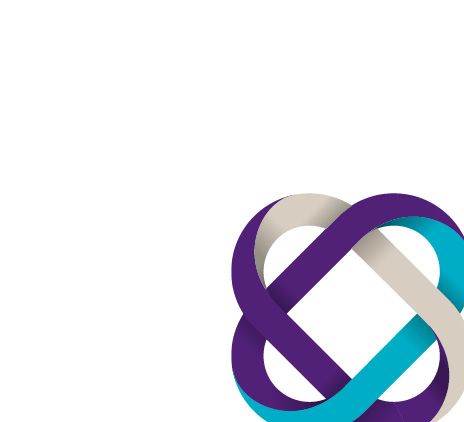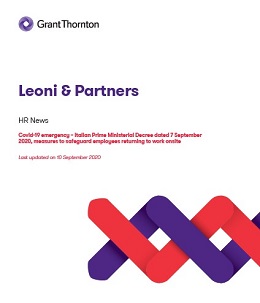-
Transactional advisory services
Find out more about the transactional advisory services of Grant Thornton Financial Advisory Services
-
Valuations
Find out more about the valuations services of Grant Thornton Financial Advisory Services
-
Mergers and acquisitions
Find out more about the merger and acquisition services of Grant Thornton Financial Advisory Services
-
Forensic and investigation services
Find out more about the forensic and investigation services of Grant Thornton Financial Advisory Services
-
Recovery & reorganisation
Find out more about the Recovery & reorganisation services of Grant Thornton Financial Advisory Services
-
Business risk services
Find out more about the business risk services of Grant Thornton Financial Advisory Services
-
Business consulting
Find out more about the business consulting services of Grant Thornton Financial Advisory Services
-
Capital market
Capital market
-
Corporate and business tax
Find out more about our corporate and business tax services.
-
Direct international tax
Find out more about our direct international tax services.
-
Global mobility services
Find out more about our global mobility services.
-
Indirect international tax
Find out more about our indirect international tax services.
-
Transfer pricing
Find out more about our transfer pricing services.
-
Litigation
Our lawyers and accountants can manage all defense measures provided not only by the Italian law, but also by EU regulations and conventions
-
Family business
Find out more about our Family business services.
-
Legal
The client can be assisted in every need and with the same care both on important operations or disputes and on simple matters

-
Back office outsourcing
Find out more about our Back office outsourcing services
-
Business process outsourcing
Find out more about our business process outsourcing services.
-
Compilation of financial statements
Find out more about our compilation of financial statements services.
-
Tax compliance
Find out more about our tax compliance services.
-
Electronic invoicing
Find out more about our electronic invoicing services
-
Electronic storage
Electronic storage is an archiving procedure that guarantees the legal validity of a digitally stored electronic document
-
Revaluation of corporate assets
Find out your civil and fiscal revaluation of tangible, intangible and financial assets
-
Human resources consulting
Find out more about our human resources consulting services.
-
Payroll
Find out more about our payroll services.
-
HR News
HR News the monthly information newsletter by Grant Thornton HR
-
Cybersecurity
GT Digital helps clients structure information security management internal functions, also through partially or totally outsourced functions
-
Agile and Programme Management
GT Digital provides support in the adoption and implementation of different portfolio management
-
Robotic Process Automation
Our “BOT Farm” can rely on digital workers able to help clients in routine activities, allowing employees to deal with more added-value activities
-
Data strategy and management
GT Digital can support clients in seizing the opportunities offered by Big Data, from the definition of strategies to the implementation of systems
-
Enterprise Resource Planning
We support clients in selecting the most appropriate ERP System according to their specific needs, helping them also understand licensing models
-
IT strategy
GT Digital supports clients in making strategic choices, identifying innovation opportunities, comparing themselves with competitors
-
IT service management
We can support with software selection and with the implementation of dedicated tools for the management of ICT processes
-
DORA and NIS 2
The entry into force of the DORA Regulation and NIS2 represents a major step towards the creation of a harmonised regulatory framework
Prime Ministerial Decree dated 7 September 2020 – which reference is made to for any useful detail – extends those extraordinary measures introduced to face the COVID-19 emergency provided under previous Prime Ministerial Decree dated 7 August 2020 up to 7 October 2020.
The new Decree, in fact, extends up to 7 October the following measures:
- urgent measures to contain the spread of Covid-19 on the whole national territory
- measures to contain the spread of Covid-19 for a safe performance of production, industrial and commercial activities
- information and prevention measures on the whole national territory
- limitations to movements to and from foreign countries
- reporting obligations when coming to Italy from foreign countries
- measures on public transport
- provisions on disability.
With reference to security measures to adopt to safeguard employees returning to work onsite, reference should still be made to the “Protocol on the regulation of measures to fight and limit the spread of Covid-19 in work environment”, updated at 24 April 2020.
To this regard, we point out the following important guidelines that need to be observed:
- The company is not required to autonomously assess risks by applying own prevention measures and selecting given protective equipment based on specific criteria, but it is only required to enact all the provisions set forth by the competent authorities (Presidency of the Council of Ministers, Ministry of Health, Regional authorities).
The possible choice to proceed with a screening (e.g. serological tests on a voluntary basis) for the assessment of the presence of antibodies to the Sars-COV-2 virus (IGG and IGM immunoglobulins) remains at the company’s discretion. - The Employer has specific responsibilities, but limited to the correct application of all the measures provided for by the Authorities. In other words, the due compliance with all the ‘provisions’ contained in the Protocols, as well as with the other specific anti-Covid19 norms expressly recalled by the law is sufficient to exclude the employer’s liability towards employees possibly infected by the Covid-19 virus.
- Employees are also responsible if they fail to comply with the specific indications and provisions on the workplace, which should in any case be adequately shared and advertised within the company.
A further interesting topic concerns the employees’ return to work onsite.
The following cases can occur:
1.An employee shows symptoms, in which case he/she needs to immediately consult his/her general practitioner, who will determine whether:
- symptoms can be attributed to a suspect COVID-19 infection (by way of example, but not limited to: hyposmia, anosmia, dry cough, high fever, breathing difficulties, etc.), in which case the employee will self-quarantine at home while waiting for the swab test, whose result will lead, if negative, to his/her the return to work or, if positive, to the immediate compulsory isolation - quarantine (to be notified to the relevant local healthcare agency). In this case, a medical certificate indicating the code V29 will cover the worker.
- symptoms are not associated to Covid-19, therefore they are ordinarily treated as sickness (common procedure through electronic certificate to be sent to INPS and return to the workplace at the end of the prognosis).
2.An employee is asymptomatic but comes from areas that are particularly monitored by the Authorities (at the date of this letter and as an example, these areas are Greece, Croatia, Spain, Malta, among many others).
In this case, managing employees’ return to work onsite subjecting them to the collection of questionnaires is not “forbidden”, but rather discommended, since it could give rise to doubts and increase uncertainty.
In fact, in Italy, measures to be applied before coming back to the workplace are established exclusively by the Authorities and, therefore, the application of further measures depending on the country where employees is returning from is needless (and, in any case, this would be a late action compared to the moment in which the employee actually crosses the country borders, which determines the application of the concerned measures, if needed).
In this regard, we advise employers to promote information activities, indicating the website of the Ministry of Health to employees, as it promptly updates the list of concerned countries and the relevant measures to be taken.
The same approach is applicable in case of journeys within the national borders, where Regional Orders establish what measures should be adopted (in line with the Ministry of Health.
This is because, as already explained, companies are only required to apply the measures established by the Authorities within their areas of competence.
Lastly, as autumn is approaching, there will be a considerable increase in seasonal flu cases and therefore it is recommended to:
- immediately inform your GP when the first symptoms occur, without panicking
- stay at home when the first symptoms occur, as a precautionary basis.
To this regard, a voluntary flu vaccination campaign, as warmly recommended by health authorities, could be a further useful means to limit the spread of flu, thus reducing those diseases that could be “confused” with Covid-19, in order to better monitor the evolution of the pandemic.
Our professionals are available for any further clarification you may need.

